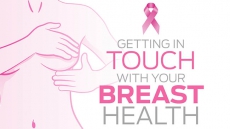A more thoughtful way of eating could help people steer away unhealthy food choices.
November is Diabetes Awareness Month. According to International Diabetes Federation, there were estimated 451 million people with diabetes in 2017. In South East Asia region alone, there were 82 million adults aged 20-79 years living with diabetes. Diabetes is becoming a true global pandemic. When compared to Caucasians, South Asians are two to three times more likely to develop type II diabetes and diabetes-related complications, heart problems and high blood pressure. Healthy diet, regular physical activity, maintaining a normal body weight and avoiding tobacco use are ways to prevent or delay the onset of type II diabetes and other chronic health conditions.
Festival season is around the corner. It is often associated as a time for family reunion, fun, laughter and over consumption of sweets, rich food, and fried foods. Practising mindfulness can help us be aware of what is happening inside our bodies and around us at the moment. A more thoughtful way of eating could help people steer away from sweets, processed and unhealthy food choices, yet fully enjoying and celebrating their culture, food and festivity, and managing their chronic health conditions.
Whether it is holiday season or otherwise, the best way to start your day is by eating a healthy breakfast with a balance of carbohydrates, protein and veggies. Eating a healthy breakfast will help kickstart your metabolism and you will control the amount of food you are going to eat later in the day. Apply this balance principle to all meals including eating out or at parties. Aim for half plate vegetables, a carb choice and some lean protein or a vegetarian alternative.

Watch for portion sizes when going to parties and holiday dinners. Try using a smaller plate at your next party. Remember party foods are processed and loaded with sugar and fats; you can try veggies and fruits instead. Moreover, be vigilant about high-fat dips and try to choose dips made of yogurt, hummus, avocado, low-fat salad dressings, or home-made oil in vinaigrette type dressings. It doesn’t hurt to try the desert at the end of the meal; however, sharing is caring, so you can apply this principle to desert by trying a smaller portion of the desert. Alternatively, replace it with some fruit.
Curb your hunger before going to a party by eating a small healthy snack at home. Listen to your body and eat slowly and enjoy every bite you take. Give yourself a mental pause before going for second servings. You may be surprised that you don’t need an extra serving!
When talking about holidays, it is imperative to talk about alcohol. Alcohol has no nutritional value and it contains empty calories. Be creative and look for alternatives such as soda, sparkling water, lemonade or plain water. If you choose to drink alcohol, limit it to not more than two drinks per party and definitely not more than 14 drinks a week. If you have diabetes, high blood pressure or other health condition, the above alcohol limit should be lowered further. Make sure to eat food while drinking.
Don’t forget to dance after the party is over. Beyond the physical benefits of physical activity, it helps the integration of mind, body and soul. Aim for 30 minutes of physical activity most days. You can divide into 10 minute intervals each time, three times during the day.
Healthy eating during holidays doesn’t have to be an obstacle or stressor. Plan ahead. Make grocery shopping lists and when shopping, never go on an empty stomach. If you are hungry while shopping, you will be thinking about fast food and are more likely to grab unhealthy snacks.
The most important thing is to nurture your senses with the foods you eat, and feel good about your choices. Try to practise mindful eating not just during the holiday season, rather make healthy eating part of your lifestyle. It is time to take action, and let’s remind ourselves that we can manage or prevent chronic conditions and enjoy the festival season.
ABOUT THE AUTHOR
Harmeet Mundra is a Registered Dietitian and certified Diabetes Educator working with Vancouver Coastal Health. She has been working with the South Asian Community for the last 15 years helping people with chronic diseases prevention and management.









